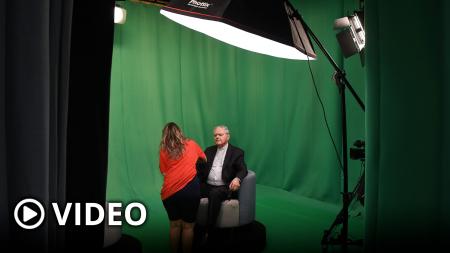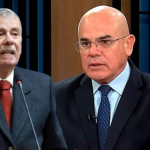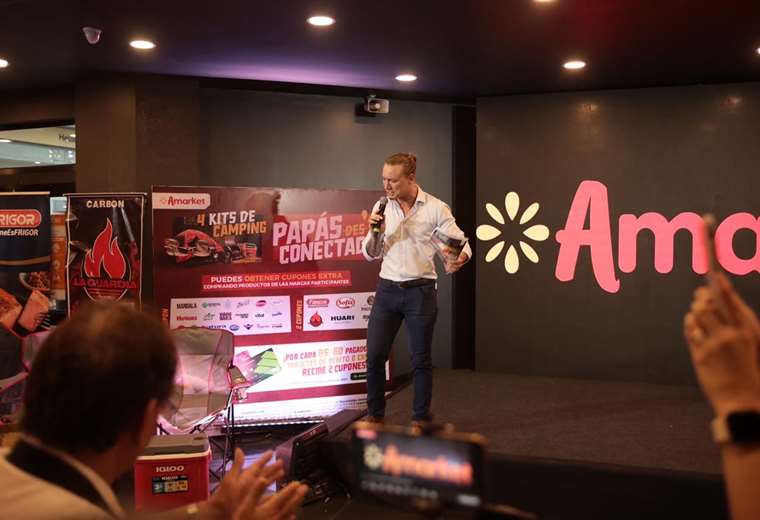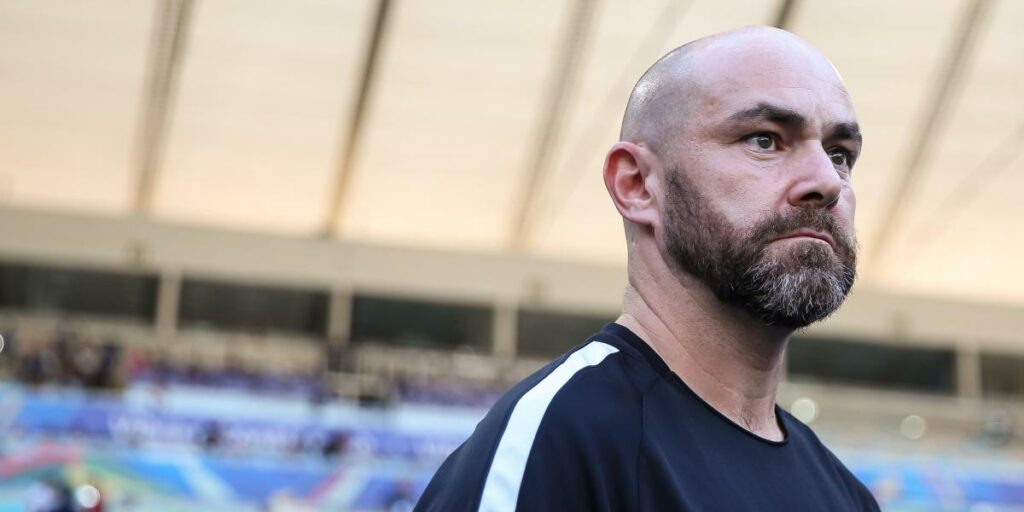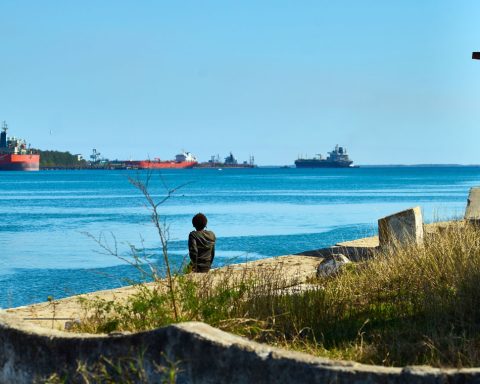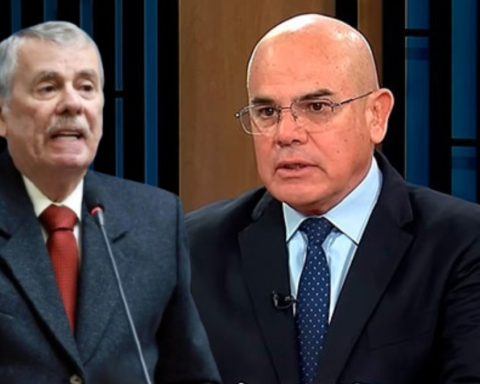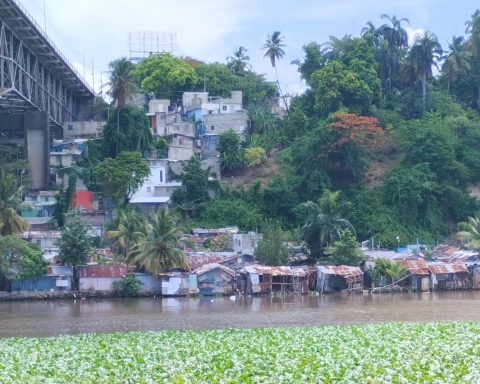10 Years of Pope Francis: Interview with Pte. Argentine Episcopal Conference Mons. Oscar Ojea
WATCH VIDEO
The president of the Argentine Episcopal Conference (CEA), Monsignor Oscar Ojea, stressed that Argentina has “offered the world” a compatriot like Jorge Bergoglio who “is doing great good” for the planet, and questioned whether in some circles or national sectors their gestures have been “disfigured or reinterpreted”.
The head of the Episcopate and bishop of San Isidro visited the Télam news agency to take a tour of the 10-year pontificate of Pope Francis that will take place next Monday the 13th and, during the interview, he remarked that, with his message, the Pope he seeks to “put the poor at the center” of his teaching.
The following is part of the dialog:
– Télam: How do you remember that day of March 13, 10 years ago?
– Look: It is indelible. He had recently been bishop of San Isidro. I couldn’t believe it, I screamed and ordered the bells to ring. We had been talking a month before about his resignation. He had told me that he had plans to confess in San Cayetano or San Pantaleon, that he was going to live in Flores. I didn’t even dream that he could be Pope. That night I dreamed that it was not true. Then I would wake up restless, but with the joy of knowing that it was true. I wrote to the new Pope, I told him about the dream and he replied that he had laughed a lot and that he too had thought it a bit crazy when the votes went up. And he told me: “From that moment, I felt a peace that, out of the blue, I knew was not coming from me. I feel protected by it and thanks to that peace I survive.”
– From those early days until today, the Pope continues to be characterized by his gestures of service and simplicity. From the first trip to Lampedusa to the last one to Africa, what message does he seek to convey and why did he choose those destinations?
– Lampedusa is the place where two continents meet, where people flee from Africa, from war and famine. Francis wanted to denounce the globalization of indifference and tell us that the world had lost its sense of responsibility. From there, the number of gestures towards the latter: his foot washings for the most humble in prisons, opening San Pedro for men in street situations, inviting the poorest in Rome to eat. Until finally this last trip to Sudan, which he felt was a huge debt because he hadn’t been able to go because of his knee. He invited the leaders of Sudan to talk about peace. He felt very committed to this journey where he made the invisible visible. These trips have shown that he always wanted to place the Church in the place of the least.
– One of the central messages of the pontificate was given through the encyclical “Laudato Si” on the subject of climate change. What importance does Francisco give to this issue and the global impact that the problem has?
– An environmental crisis corresponds to a social crisis. For the Pope, the root of the disease of the water, the soil and the air is in the human heart. There is something in the human heart that tends to see nature as if it were a painting, where I can extract and remove everything I want, feeling the center and denying the biblical principle that man is called to care. He tells us about the extractivism paradigm, the technological paradigm, which is removing minerals and riches from the earth at any cost, and often without protocol, not caring, for example, for water pollution, being indifferent to indiscriminate logging of trees and global warming The Pope links these problems to this vision of the man who wants to dominate everything. The other paradigm is that of care. We have to learn to take care of ourselves and care, and for this we need a new culture, where lifestyles and consumption habits change. It is not solved by a congress, leaders or scientists, but it has to do with an issue in education.

– Precisely the educational issue has also been central to your message in these 10 years and specifically the proposal for a global educational pact. What does it mean?
– The Pope made a call in 2019 to all social actors to be able to unite in a global pact, based on the phrase “To educate a man, a village is needed.” The educators are the teachers, the same young person, boy or girl, also the family, society, governments, artists, journalists. The Pope proposes seven commitments: the first is the centrality of human education, which means creating an atmosphere so that each person is himself, and discovers his values and gifts. The second is listening in depth to the young, not just the words but what is behind them. It is also essential to empower and involve the family, who cannot leave the children in the centers as if they were places where children are deposited, but rather have to be part of an education where values are educated. Then, the place of women: for a new culture, for a new global pact, women must be relocated throughout the world of education. The sixth is the beginning of a rather critical education that can locate us in the world in which we live and not in a glass bell where each one gives an illusory formation. Finally, caring for the planet, an education that shows extreme respect for creation.

– Another central issue of your pontificate is the poor. What place does he occupy in his teaching? What does the Pope think of the popular economy?
– Francisco says that the poor are like teachers. They preserve values and traditions of solidarity, coexistence and respect that have disappeared in our middle-class societies. Francisco wants to put them at the center of the path of the church because we follow a God who was born, lived and died poor. The Gospel is full of justice, compassion and mercy, so that the Christian must work for social promotion. Many times it is heard that the church is in favor of poverty. Don’t you know how the Church works in marginal centers to get kids off drugs? They are the Homes of Christ. They say they leave the three C’s “street, jail and cemetery” to enter the vital three C’s “club, school and chapel”. The Pope has a look at the important popular economy. He has shown it in his speeches to social movements.

– And there he talks about the three Ts.
– Land, roof and work. We all want there to be full employment. Work adds to the dignity of the person, it is not merchandise. Work gives meaning to life. That is why everything that has to do with production, with an economy where there are concrete investments, is fundamental, but nevertheless there are a huge number of brothers who cannot reach this situation. It is necessary to look at those solidarity economies. There are a number of jobs that are typical of the popular economy where we have to look and support them.
– 10 years after his arrival, Francisco’s leadership is indisputable in the world. What happens in Argentina? Why still some sectors do not recognize this preponderant role that it has today in the world?
– I am convinced that Francisco is very loved in Argentina and that I am very few environments where his figure has been known through certain gestures that have been disfigured, reinterpreted. Many times things that the Pope has said for a part of the world immediately, a certain sector of the press, applies it to Argentina. It seems very important to me that Argentines can feel that we have offered a person to serve people. We have offered the world an Argentine who has been made and trained with us, who has participated in our social and community life, and is doing great good for the world. The majority of Argentines feel great joy for this. And to those who fight him or have wanted to disfigure his figure, I would say: read what the Pope says. His word is very important, as he holds it.
